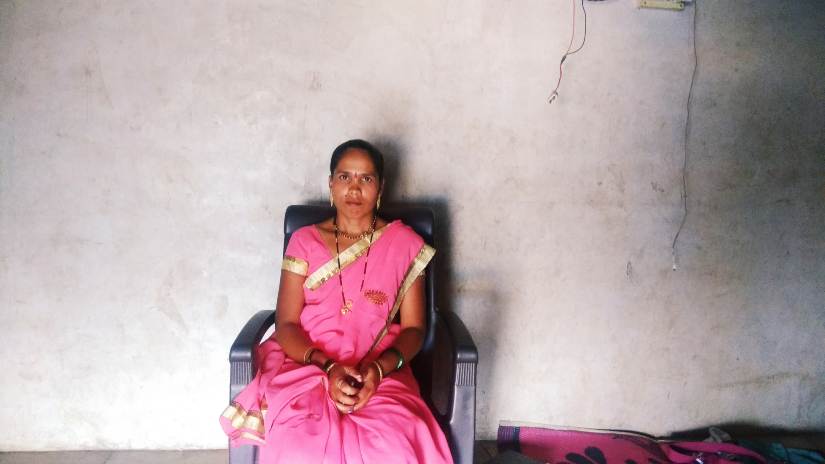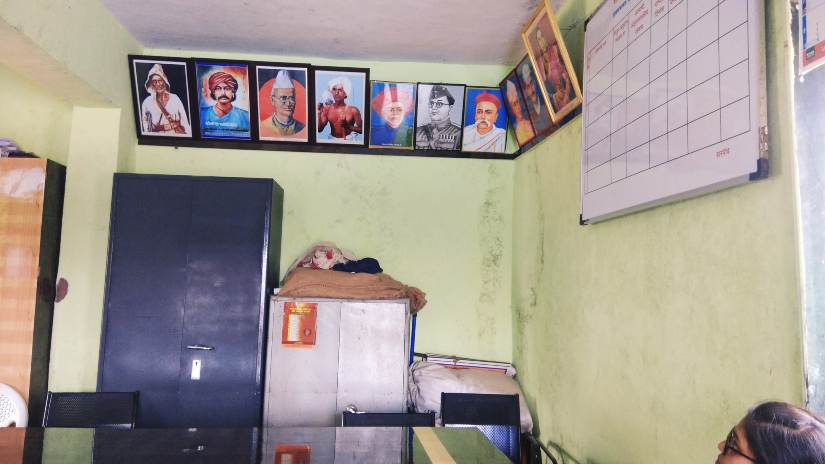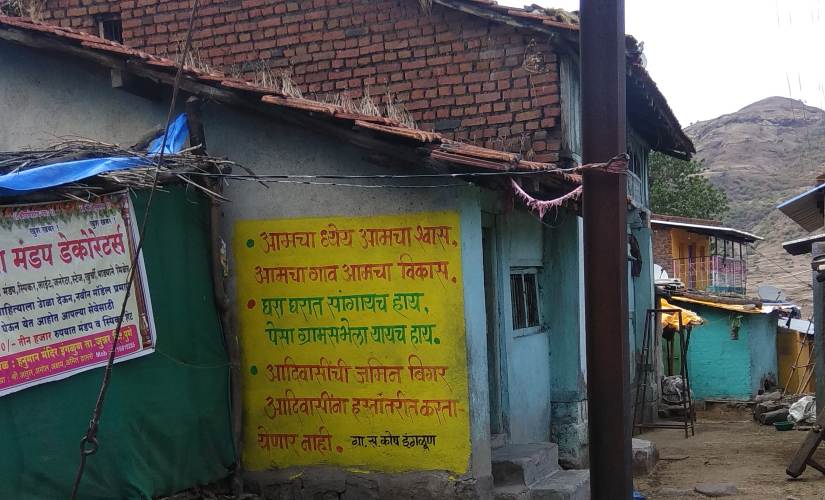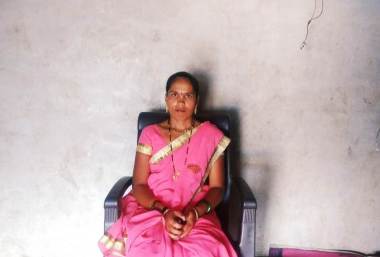Editor’s Note: In this eighteen-part series, we will attempt to address the tropes associated with the communities in question from an adivasi perspective while also exploring the contemporary relationship of adivasi citizens with the Indian government. This is the eleventh article of the series on adivasi communities in peninsular India. The Panchayats Extension to Scheduled Areas, (PESA), in Scheduled Areas has been creating a platform for adivasi/tribal women to assert their agency over their day-to-day lived realities, and over nature. This is made possible by decentralisation of power through local self-governance, adopted by the Constitution of India in the 73rd amendment. The amendment has provided institutional protection for the community and its culture, traditions, language, knowledge, rights, etc. However, the implementation of the visionary aim of local self-governance in the pursuit of empowerment of adivasi women to a great extent depends on the social and political conditions of that particular region. Women in tribal communities are not free from patriarchal oppression. However, the nature and the way in which patriarchy functions within adivasi communities is different from the nature of patriarchy in caste society. This article intends to examine these aspects by tracing the life of an adivasi woman sarpanch belonging to the Mahadev Koli tribe. The sarpanch, Usha Supe, presides over the Khubi gram panchayat, which is located at the Malshej ghat in Pune district. The panchayat consists of three villages, namely Karanjale, Khubi, and Khireshwar. Khubi village, which is surrounded by dense forests, has a large population of Mahadev Koli tribes. Out of the total population of 4,500 in the region, 500 belong to the Maratha community, 200 to the Dalit community and the rest are Mahadev Kolis. [caption id=“attachment_7285781” align=“alignnone” width=“825”]  Usha Supe, sarpanch of Khubi gram panchayat. Image: Pooja Kudal[/caption] The Karanjale and Khubi villages have a similar proportion of Maratha and Dalit households, while Khireshwar village is entirely populated by adivasis; which is why it has been declared as a ‘PESA gaon (village)’. Sarpanch Usha Supe is an adivasi woman, who is highly respected for her credibility, hard work, and for being a strong voice of adivasis in the village, which she has been serving for the past three years. Soon after her SCC examination, Supe got married. However, that didn’t stop her from pursuing her education. Supe had to travel 30 kilometres every day by bus to attend lectures while she was pursuing her post-graduation in the Marathi language. Although Supe’s husband studied only till Class 10, he supported her in pursuing higher education. By finishing her post-graduation, Supe became the only person in the village to have completed tertiary level education. That is one of the primary reasons why the people of Khubi, Karanjale, and Khireshwar villages elected her as ‘sarpanch’, mentions Supe. Supe sets an example of a strong adivasi woman’s voice in matters of local governance. Her work routine consists of several meetings; at times even late-night meetings, in which most of the participants are men. She fearlessly asserts her rights and diligently carries out her responsibilities as a sarpanch. It is important to note that as opposed to the social norms in rural areas where men tend to impede their wives’ work outside the home, Supe’s husband has been very supportive of her. [caption id=“attachment_7285821” align=“alignnone” width=“825”]  The Khubhi gram sabha office. Image: Pooja Kudal[/caption]
Caste dynamics and gender relations in Scheduled Areas
“The adivasi community itself serves as a non-caste or outcaste society,” Supe explains. “The caste/varna system and the hierarchy-based social stratification are absent from the governing structure of the adivasi community. Although there is caste diversity in the villages, governance under the adivasi community has prevented upper castes from asserting their power over individuals/groups belonging to lower caste communities.” Supe heads an eight-member body of the gram panchayat, of which four are males. Her education, says Supe, plays a vital role in helping her to be assertive in a space which is usually male-dominated. Though the up-sarpanch belongs to an upper caste community, his lack of education and the absence of the caste-based hierarchy in the adivasi-dominated community makes him relatively powerless even though his social status is superior in non-adivasi communities. However, the inferiority complex among the male members working under the leadership of a woman is not as strong in adivasi-dominated communities as compared to the caste-based society. [caption id=“attachment_7285831” align=“alignnone” width=“825”]  The Khubi village in Pune district. Image: Pooja Kudal[/caption]
Mahila Gram Sabha (Women’s Gram Sabha)
Supe implemented the provision of the mahila gram sabha in the region, which ensures the participation and representation of adivasi women in the decision-making processes. Generally, in a gram sabha, women (usually in the minority) speak less in the presence of male members. Men have a tendency to dominate the discussions. As a result, women remain silent and are kept in the dark regarding the various schemes and the overall political activities that take place in villages. The mahila gram sabha is a platform only for women — one where they can speak, assert, reflect, discuss, agitate and organise. They can speak fearlessly, confidently and loudly about their own day-to-day resistance, experiences and lived realities. This facilitates and enables women in the Karanjale, Khubi, and Khireshwar villages to speak for themselves and occupy their rightful spaces which, for long, have been denied to them by men. The mahila gram sabhas also ensure the implementation of sustainable developmental provisions in Scheduled Areas which helps in preserving adivasi land, water, forest, and culture. “In such an informal gathering, women also speak up about their health issues related to menstruation, pregnancy; their relationship with husband, incidences of domestic violence, need of alcohol ban, etc," Supe said. She has also appointed four women members and formed a tanta mukti samiti (committee to prevent local quarrels) in order to understand women’s concerns, from their own perspectives.
How PESA ensures empowerment of women
In Khubi Gram Panchayat, PESA has been implemented under the fifth schedule in 2015-16. The Act not only has provisions for self-governance with a yearly funding of Rs 8-9 lakh but also helps in the empowerment of adivasi women. Supe became the first woman in her village to be elected as sarpanch after the implementation of PESA. Villages like Khubi and Khireshwar are blessed with rich forest resources like hirada (Indian walnut), honey, shikakai, etc. Normally, the women in such PESA villages engage mostly in collecting and preserving these forest resources, while the men sell these products to the customers via a chain of a mediator and then a trader. Consequently, the men get a very small amount of money, and of this, a small share goes to women – the main stakeholders in the whole process. Supe implemented the concept of an open market or the availability of the market in the village itself. This eliminates the role of mediator and directly invites traders or customers for an auction of the local forest resources. This allows the money, including surplus share, to go directly into the hands of women. Under the provisions of PESA, Supe also facilitates the mahila gram sabha without any criterion of quorum. Health camps, training camps and self-help groups for women are some of the action plans which are included in the provision of PESA in order to intensify its focus on women’s health, livelihood, skills, financial stability, and sustainable development in terms of amplified focus on land, water, forest and culture with which Adivasi women are closely associated.


)

)
)
)
)
)
)
)
)



